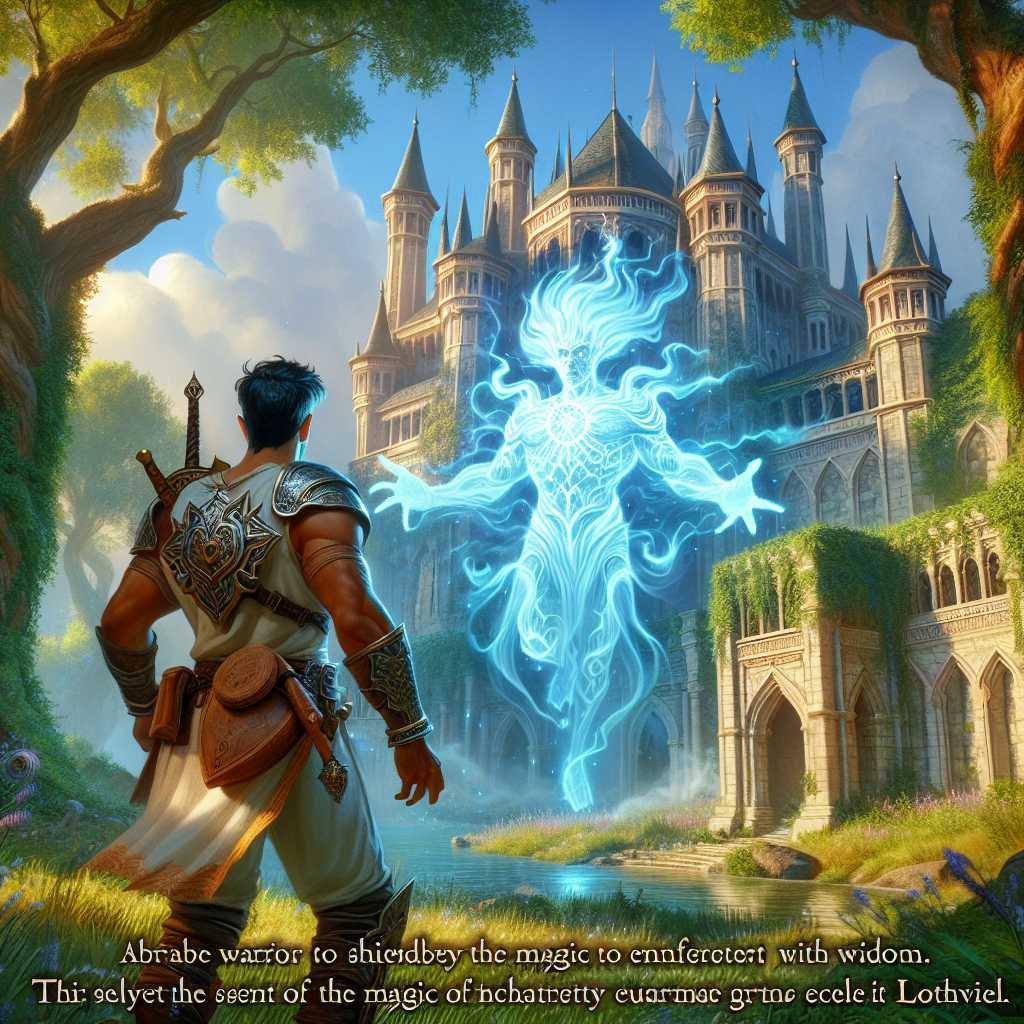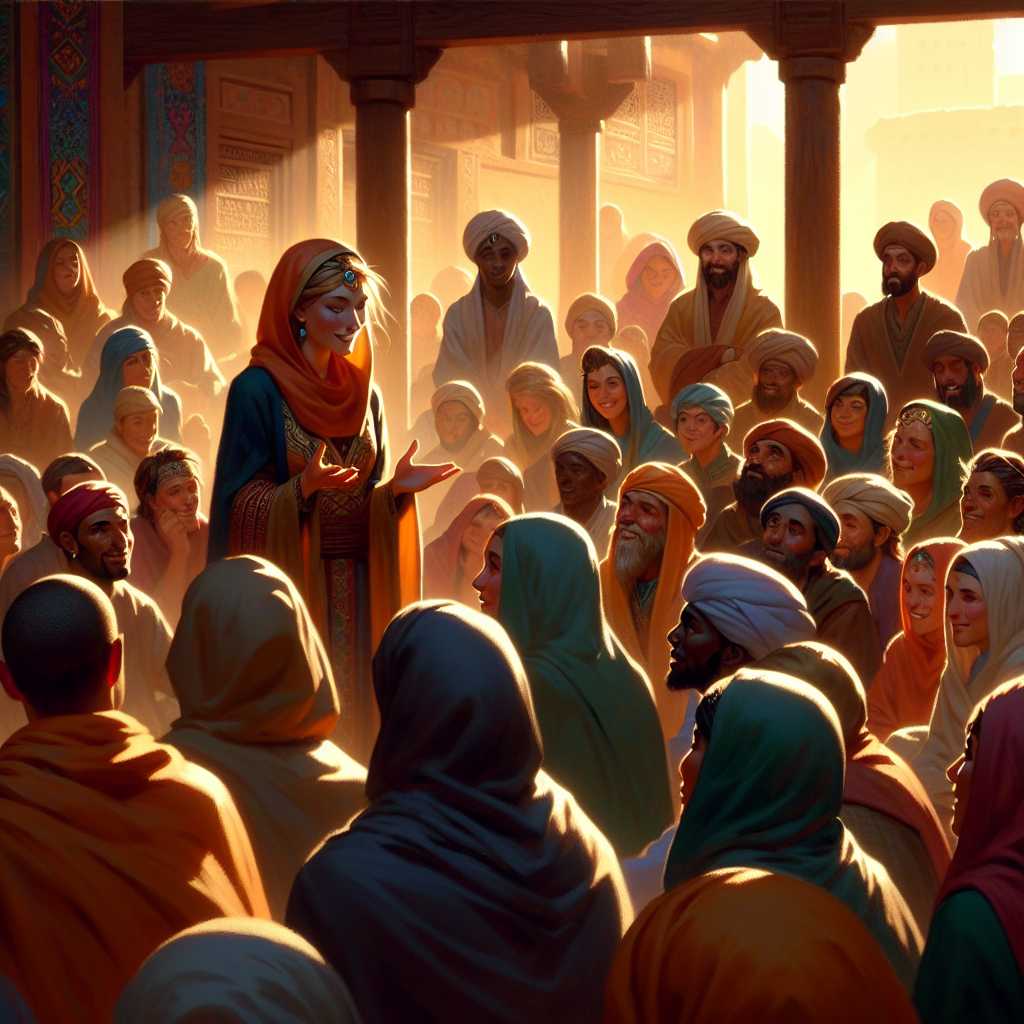
In the year of our Lord, 180 A.D., under the rule of the wise Emperor Marcus Aurelius, a mighty gladiator by the name of Valerius did rise. Blessed by Mars himself, or so the people claimed, Valerius was not of noble blood but born amidst the war-torn lands of Gaul, brought to the heart of Rome in chains. Yet, through the toils of the arena, he won not only his freedom but the favor of the Roman populace.
His frame was as iron, sculpted by the clashing of steel on steel, and his eyes held the piercing blue of the winter skies above the untamed forests of his homeland. His heart, however, was a locked casket, sealed by years of warfare and mastery of the visceral dance in the sands of the Colosseum.
Yet legends oft beget shadows, and Valerius' looming presence caught the baleful eye of Senator Gaius Aelius, a man whose tongue dripped with honeyed words and whose heart festered with the venom of asps. Gaius held domains vast and eyes ever questing for more, and he saw in Valerius a tool to be used or a threat to be extinguished.
"Behold," seethed Gaius, speaking in hushed tones in the dead of night to his confidants, "the brute receives adulations befitting a Caesar, yet his mind is sharp. We must offer him an alliance or wear him a crown of death." So, did the cunning senator devise schemes to bind the gladiator to his will.
But fate, as it oft does, spun a thread unforeseen. Valerius, in his walks through the city, chanced upon a sight most delicate – a maiden of Rome, Lavinia, whose beauty could lure the very sun from his chariot. She was as a dove amidst the hawks; the daughter of Senator Lucius, a man of honor and valor, unlike his counterpart, the sly Gaius. Lavinia sensed a kindred spirit in Valerius, and thus did their hearts begin to weave a tapestry of affection, tender and strong.
One eve, as twilight caressed the marble of the city, Valerius met Lavinia in the gardens of Sallust. Their secret tryst was a bloom of joy in the parched desert of the gladiator's life. Here, they shared whispers of dreams unburdened by the weight of the arena or the intrigues of the Senate.
"Valerius, thou art more than the roar of the crowds and the rage of battle. There lies within thee a soul capable of gentle deeds and love," breathed Lavinia, her words a balm upon scars unseen.
He, as if drinking from the sacred well of the Vestal Virgins, felt his hardened shell begin to yield. "Lavinia, thou hast given me a light that the sun envies. In thy gaze, I see the man I long to be."
But, as Icarus learned in his flight too close to the sun, happiness be oft but a fleeting warmth before the fall. Gaius, through his network of whispers and shadows, learned of their union and saw therein his venomous opportunity.
The scheming senator cornered Valerius after a grueling battle in the Colosseum, the stench of blood and death still clinging to the air. "Valiant gladiator, behold! I offer thee a bargain to ensure thy love's security and thine own ascension. Align with me against Lucius, and all of bliss shall be thine," coaxed Gaius, his words silk-wrapped daggers.
Valerius, with the clarity of a morn's first light, saw the viper before him. His refusal was as a hammer upon anvil, decisive and resolute. "I am a gladiator, Senator, shaped by conflict and strife, yet it is not my sword that you fear – 'tis my heart. I shall not betray love, not for coin nor power."
And so, like the tempest that follows the calm, wrath descended upon Gaius. Soon whispers turned to accusations, and swords answered words. Valerius was betrayed, cast into the pits of Rome's underbelly, accused of crimes against the Senate and the people; a fate designed to shatter Lavinia's heart and spirit with it, to bind her to Gaius' will.
Yet, in this tale of ancient yore, the strands of destiny were not so easily sundered. Lavinia, with the courage of a lioness, sought out her father and with tearful pleas unveiled Gaius' treachery. Senator Lucius, with fire and thunder, took his stand in the Senate, his voice an arrow aimed true at the black heart of corruption. "My fellow Romans!" he bellowed. "We have been tarnished by lies woven in the shadow of power, but let us cleanse our honor. Free Valerius, a man of true virtue!"
And so, the ploy of Gaius unraveled like a scroll cast into the fire. Valerius, returned from the darkness, stood once more beneath the open sky, victorious not in the sands of the arena, but in the arena of men's hearts.
The tale of Valerius and Lavinia, whispered through the ages, sings a song of hope and love triumphant, a testament to the strength that lies within the grasp of all who hold true. Remembered evermore, the gladiator's tale echoes the everlasting struggle between the thirst for power and the power of love, each vying to chart the course of history.
And so, dear listeners, I bid thee ponder – for within each of us beats the heart of a gladiator, the soul of a lover, and the spirit to face the trials of our fates. Be steadfast, be brave, and let thy actions weave a tale for the ages.










